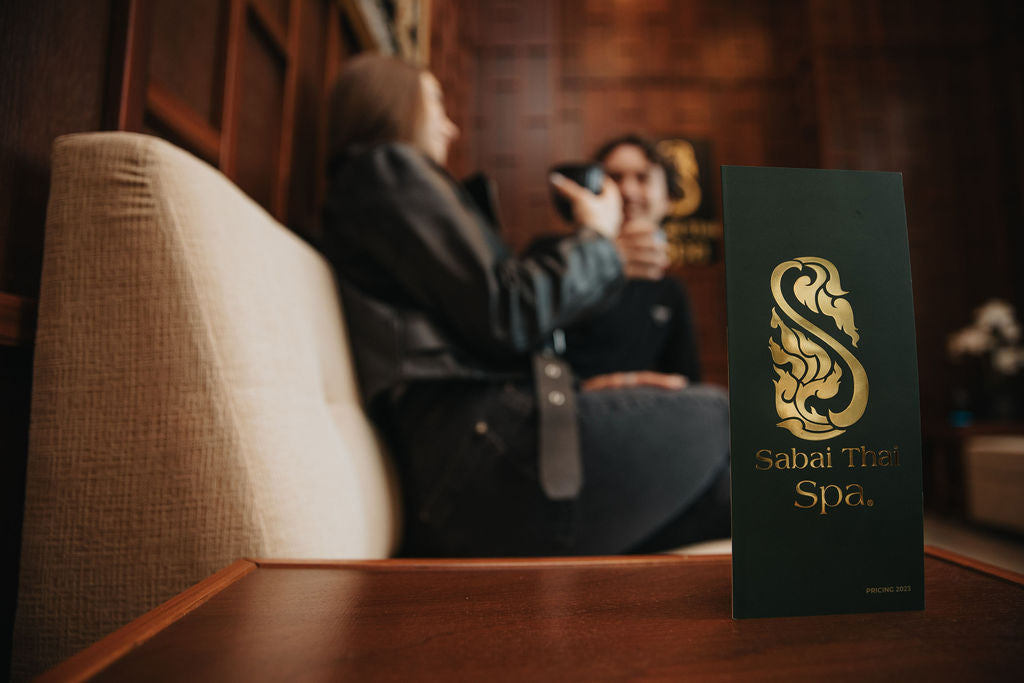In today's changing retail market, restaurants are no longer just about food—they are about the entire customer experience, digital engagement, and brand storytelling. As the retail industry shifts towards omnichannel strategies, personalization, and customer-centric models, modern restaurants are mirroring these trends. Zaatar w Zeit, a Lebanese fast-casual brand, exemplifies this intersection of retail and food service, where dining meets digital convenience and brand loyalty extends beyond the storefront.
Since its launch in Vancouver, Zaatar w Zeit has seamlessly blended traditional Lebanese flavors with modern retail strategies, leveraging digital ordering, delivery partnerships, and brand storytelling to build a loyal customer base. With a presence in both Downtown Vancouver and West Vancouver’s Park Royal shopping district—one of the city’s most recognized retail hubs—the restaurant is not just serving food; it’s curating an experience that aligns with the way consumers engage with brands in today’s competitive retail space.

From the Middle East to Vancouver: A Strategic Expansion
For Zaatar w Zeit, expanding into Canada was more than just opening another restaurant—it was about proving that Lebanese cuisine has universal appeal.
‘We deliberately chose a market with fewer people familiar with our cuisine to highlight its versatility and authenticity,’ says Joanne Zarife, Business Director at Zaatar w Zeit Canada. ‘We are bringing Lebanese street food to a new audience while ensuring it aligns with contemporary dining expectations—health-conscious choices, digital accessibility, and a seamless customer journey.’
With nearly 90+ locations across the Middle East, the brand entered Canada with a focus on modernizing fast-casual dining. Offering freshly prepared meals with a commitment to quality, Zaatar w Zeit positioned itself within Vancouver’s bustling retail districts to reach both on-the-go shoppers and diners looking for an elevated quick-service experience.
The Retail-Driven Evolution of Fast-Casual Dining
Restaurants today face the same challenges as retail businesses: evolving consumer preferences, digital transformation, and the demand for convenience. Zaatar w Zeit has embraced these challenges by implementing a retail-driven approach to restaurant operations.
-
Omnichannel Ordering Experience
Just as retailers invest in e-commerce, Zaatar w Zeit has integrated digital platforms into its business model. Customers can order via the brand’s web platform or through third-party delivery services like Uber Eats, SkipTheDishes, and DoorDash.
-
Strategic Location Selection
The brand’s second location being in Park Royal Shopping Center, a prime retail hub, reflects the growing synergy between restaurants and retail spaces. With retail foot traffic playing a key role in sales, Zaatar w Zeit benefits from shoppers looking for high-quality, convenient meal options.
-
Brand Storytelling & Customer Engagement
Much like modern retail brands, Zaatar w Zeit relies on storytelling and community-building. By using social media, influencer marketing, and high customer review ratings, the brand strengthens its position in a competitive market.
Overcoming Challenges in a New Market
Entering the Vancouver market wasn’t without its obstacles. The brand’s Downtown Vancouver location opened just months before the COVID-19 pandemic in 2020, leading to a dramatic decline in foot traffic as offices and colleges shut down.
‘Initially, our business model relied heavily on downtown professionals and students,’ says Zarife. ‘When remote work took over, we had to pivot.’
By 2022, as in-person activities resumed, Zaatar w Zeit regained momentum. However, the brand also had to adapt to evolving market trends, including labor shortages, supply chain disruptions, and changing consumer behaviors.
To stay ahead, Zaatar w Zeit focused on:
- Operational efficiency – Streamlining processes to maintain quality while managing costs.
- Sustainability – Emphasizing eco-friendly packaging, a growing consumer demand in Vancouver.
- Menu innovation – Expanding plant-based options to align with local dietary preferences.
‘These challenges pushed us to innovate, refine our operations, and strengthen our connection with the local market,’ adds Zarife.
Building Consistency Across Locations
One of the biggest concerns for growing restaurant brands is maintaining quality across multiple locations. For Zaatar w Zeit, consistency is ensured through a structured operational framework, including standardized recipe manuals, rigorous staff training, and a central kitchen model.
‘Whether you’re dining in Dubai, Beirut, or Vancouver, you will find the same Zaatar w Zeit taste and flavours’ Zarife explains. ‘That’s what sets us apart— By centralizing key cooking processes and portioning, we can guarantee that every item on our menu, is just as authentic and delicious no matter where you’re enjoying it.’
The Role of Technology in the Restaurant-Retail Connection
Technology is reshaping both the retail and restaurant industries, with a focus on digital convenience, data-driven decisions, and customer engagement. Zaatar w Zeit has fully embraced this shift.
- Online ordering and delivery platforms expand customer reach and improve accessibility.
- Customer data analytics helps refine menu offerings and improve service.
- Social media marketing and influencer collaborations drive engagement and brand awareness.
However, third-party delivery services come with high commission fees. To counterbalance this, the brand is prioritizing its own online ordering platform, allowing customers to order directly while reducing costs.
Community-Driven Growth
Much like successful retail brands that emphasize local engagement, Zaatar w Zeit prioritizes community connections. The restaurant sources ingredients from local suppliers to ensure quality and sustainability, actively partners with local businesses and supports cultural events to strengthen brand loyalty, and reinforces its commitment to giving back through charitable initiatives like food donations.
‘Our goal is to be more than just a restaurant—we want to be a community hub,’ says Zarife.
Marketing and Branding Strategies for Success
In a market where both retail and dining experiences are increasingly shaped by digital engagement, Zaatar w Zeit has adopted a multi-faceted marketing strategy:
- Influencer marketing: Collaborating with food bloggers and lifestyle influencers.
- Customer reviews: Leveraging high ratings on Google and delivery platforms to boost credibility.
- Event sponsorships: Engaging in cultural events to tap into local networks.
Advice for Aspiring Entrepreneurs
For those looking to launch a successful restaurant brand in Vancouver, Zarife emphasizes:
- Differentiate your brand – Stand out by offering something unique.
- Understand local consumer behavior – Adapt to trends while maintaining authenticity.
- Invest in technology – Digital ordering and marketing are key to staying competitive.
- Build a strong brand identity – Customers connect with brands, not just products.
What’s Next? Expansion and Innovation
Looking ahead, Zaatar w Zeit is focused on growth within Vancouver and across North America.
- Expanding into new locations to strengthen its Canadian presence.
- Introducing catering services for corporate events, birthdays, and family gatherings.
- Exploring franchising opportunities to scale the brand’s success.
‘Our vision is to make Zaatar w Zeit a household name—not just for Lebanese food, but as a leader in healthy fast-casual dining,’ Zarife concludes.
The Retail Mindset in the Restaurant Industry
As the line between restaurants and retail blurs, Zaatar w Zeit serves as a prime example of how food businesses can thrive by adopting retail-driven strategies. By focusing on brand experience, digital convenience, and community engagement, the brand is setting new standards for what it means to be a modern restaurant in an evolving retail landscape.
With a strong foundation and a clear vision for the future, Zaatar w Zeit is proving that the best restaurant brands don’t just serve food—they create experiences.



